Are you considering sea freight from China to Africa but unsure about the complexities involved?
In this comprehensive guide, we will delve into the key routes, challenges, and a detailed cost breakdown associated with this vital shipping process. Understanding the nuances of sea freight is essential for optimizing your logistics strategies. In this article, we’ll explore everything from major shipping ports to effective communication with your freight forwarder, ensuring you are well-equipped to navigate this critical aspect of global trade.
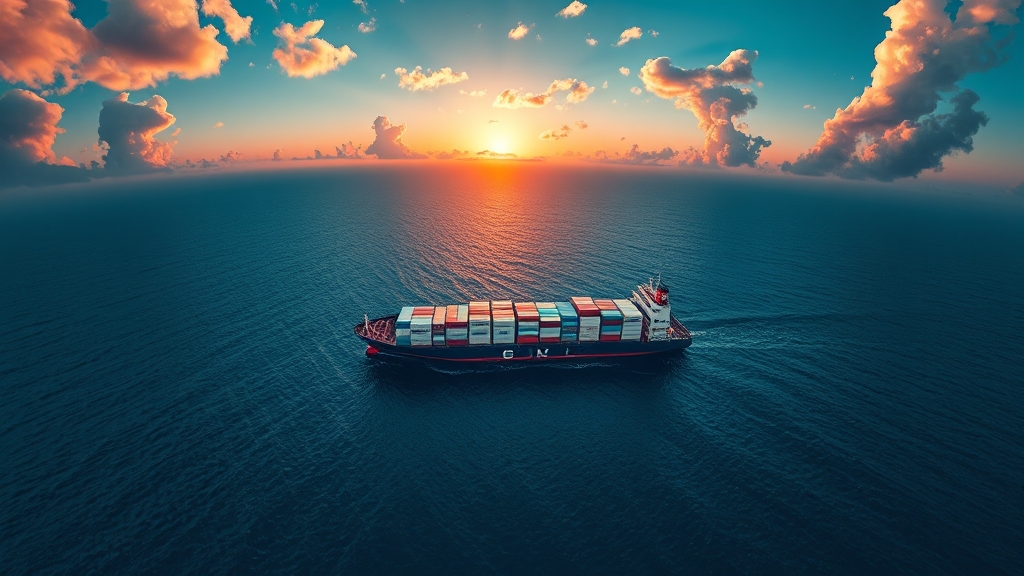
Understanding Sea Freight from China to Africa
Overview of the Sea Freight Process
Sea freight is an essential mode of transport for importing goods from China to Africa, involving several key steps. First, the process begins with selecting a reliable freight forwarder like Dantful International Logistics, which specializes in providing comprehensive logistics services tailored to meet the needs of global traders. The freight forwarder will help you choose between Full Container Load (FCL) and Less than Container Load (LCL), depending on the volume of cargo being shipped.
Once the shipment is arranged, the cargo is typically collected from the supplier’s warehouse and transported to the nearest major shipping port in China. The freight forwarder handles all necessary documentation, including the bill of lading and customs declaration, which are crucial for a smooth shipping process. After the cargo is loaded onto a vessel, it will navigate major shipping routes across the sea, ultimately reaching the chosen destination in Africa.
Upon arrival, port authorities will conduct inspections to ensure compliance with local regulations, and customs clearance is required before the goods can be delivered to the final destination. Efficient communication throughout the process is vital to avoid delays and ensure that everything runs smoothly.
Importance of Sea Freight in Global Trade
Sea freight plays a critical role in global trade, primarily due to its cost-effectiveness and ability to transport large volumes of goods. According to the International Maritime Organization (IMO), approximately 90% of the world’s trade is carried by sea, emphasizing its significance in facilitating international commerce. This is particularly true for trade between China and Africa, where the volume of imports and exports has been steadily increasing.
In recent years, the partnership between China and various African nations has strengthened, resulting in a burgeoning trade relationship. Sea freight serves as the backbone of this relationship, providing a reliable method for transporting a wide array of products, including electronics, machinery, textiles, and raw materials. The growth of e-commerce has also amplified the demand for efficient logistics solutions, enabling businesses to cater to the diverse needs of consumers across the African continent.
Key Sea Freight Routes from China to Africa
Major Shipping Ports in China
China is home to some of the busiest and most strategically located shipping ports in the world. The following table outlines a few major ports in China that are commonly used for sea freight to Africa:
| Port | Location | Key Features |
|---|---|---|
| Shanghai | East China Sea | Largest port in China, extensive facilities for container handling. |
| Shenzhen | South China Sea | Known for rapid processing times and proximity to manufacturing hubs. |
| Ningbo | East China Sea | Major gateway for cargo, with advanced logistics support. |
| Guangzhou | Pearl River Delta | Efficient customs procedures and handling of various cargo types. |
| Xiamen | Taiwan Strait | Strong connections to Southeast Asia, ideal for transshipment. |
Key Destinations in Africa
When shipping to Africa, several key destinations stand out due to their well-established ports and logistics infrastructure. Below is a list of primary ports in the African continent that frequently receive sea freight from China:
| Port | Country | Importance |
|---|---|---|
| Durban | South Africa | Busiest port in Africa, major hub for imports and exports. |
| Mombasa | Kenya | Gateway for East Africa, crucial for trade with landlocked countries. |
| Lagos | Nigeria | Largest city in Nigeria, significant trade center. |
| Tangier Med | Morocco | Key link between Europe and Africa, rapidly growing port facilities. |
| Port Said | Egypt | Strategic location for access to the Suez Canal, facilitating global trade. |
These major shipping routes and destinations highlight the importance of sea freight in connecting China and Africa, making it a vital component of international trade. By choosing Dantful International Logistics, you can ensure that your goods are transported efficiently and safely to these key ports. For more information on logistics services, check out our DDP Shipping Services.
Challenges in Sea Freight from China to Africa
Navigating Customs Regulations and Compliance
When it comes to sea freight from China to Africa, one of the most significant challenges is navigating the complex customs regulations and compliance requirements. Each country in Africa has its own customs policies that can vary widely. Importers must ensure that all documentation is complete and accurate to avoid delays or legal issues. Common documents required include bills of lading, commercial invoices, packing lists, and specific import permits.
To facilitate a smoother customs clearance process, it is advisable to partner with a reliable freight forwarder like Dantful International Logistics. Our team of experts understands the nuances of customs regulations across various African nations and can assist you in preparing the necessary documentation to ensure compliance and minimize delays.
Overcoming Port Congestion and Delays
Port congestion is another significant challenge faced in maritime logistics. Major ports in Africa, such as Durban and Mombasa, often experience high traffic, leading to delays in unloading and customs clearance. This congestion can be exacerbated by inefficiencies in port operations and inadequate infrastructure.
To mitigate risks associated with port congestion, it is essential to plan shipments carefully. Choosing the right port of entry based on current conditions and staying updated on port operations can significantly affect delivery timelines. Moreover, engaging a professional freight forwarder such as Dantful International Logistics can provide real-time updates and alternative routing options to avoid congested ports.
Managing Weather and Environmental Factors
Weather conditions can significantly impact sea freight operations. Factors such as storms, heavy rains, or fog can lead to shipping delays and increased transit times. For instance, during the monsoon season, certain shipping routes may become less navigable, affecting schedules.
To manage these environmental factors effectively, it is crucial to have thorough planning and risk assessment. Freight forwarders often utilize advanced weather-tracking technologies to anticipate potential disruptions. By collaborating with a logistics provider like Dantful International Logistics, businesses can gain access to critical information that can help in making informed shipping decisions, ensuring that cargo arrives safely and on time.
READ MORE:
- Shipping From China To Algeria
- Shipping From China To Angola
- Shipping From China To Morocco
- Shipping From China To Nigeria
- Shipping From China To Kenya
- Shipping From China To Tanzania
- Shipping From China To South Africa
Cost Breakdown of Sea Freight from China to Africa
Factors Affecting Shipping Costs
Several factors influence the cost of sea freight from China to Africa. These include:
- Distance and Route Selection: Longer distances typically incur higher shipping costs, influenced by the chosen route.
- Container Type and Size: The choice between Full Container Load (FCL) and Less than Container Load (LCL) can also affect pricing.
- Fuel Prices: Fluctuations in fuel prices can lead to varying shipping costs, as fuel surcharges are often added to freight rates.
- Seasonality: The time of year can also impact prices. Peak seasons often see increased rates due to higher demand for shipping services.
Comparison of Full Container Load (FCL) vs. Less than Container Load (LCL)
| Criteria | Full Container Load (FCL) | Less than Container Load (LCL) |
|---|---|---|
| Cost | Generally more cost-effective for large shipments | More economical for smaller shipments |
| Transit Time | Faster, as the container is dedicated to one shipment | Slower, due to consolidation and deconsolidation processes |
| Space Utilization | Full use of container space | Limited space utilization, may result in excess space |
| Risk of Damage | Lower, as cargo is not mixed with others | Higher, due to shared container space |
Choosing between FCL and LCL depends on the volume of goods being shipped. For larger volumes, FCL tends to be more cost-effective, while LCL is suitable for smaller shipments.
Hidden Costs in Sea Freight
Hidden costs in sea freight can significantly impact overall shipping expenses. Common hidden fees include:
- Terminal Handling Charges (THC): Fees charged by ports for loading and unloading cargo.
- Customs Duties: Import taxes that vary by country and product type.
- Documentation Fees: Charges for necessary paperwork and compliance checks.
- Insurance Costs: While optional, cargo insurance is crucial for mitigating risks.
Understanding these potential hidden costs ahead of time can help businesses budget effectively. Working with Dantful International Logistics allows clients to receive transparent pricing with no hidden surprises, ensuring that they are fully informed of all potential costs involved in their shipments.
Selecting the Right Freight Forwarder for Sea Freight
Importance of Experience and Expertise
When it comes to sea freight from China to Africa, selecting a competent freight forwarder is crucial for ensuring a smooth shipping process. An experienced freight forwarder brings invaluable knowledge of the intricacies involved in international shipping, from customs regulations to port operations. They are well-versed in managing logistics challenges, enabling you to navigate complexities such as cargo routes and potential delays.
Choosing a forwarder with a solid track record in the China-Africa shipping corridor can significantly enhance your logistics experience. For example, seasoned freight forwarders understand the nuances of various African ports, including Mombasa, Durban, and Lagos, and can provide insights into the fastest and most cost-effective routes. Their expertise extends to compliance with local laws, which can vary widely between countries. This knowledge minimizes risks associated with customs clearance, ensuring your cargo reaches its destination on time and without incurring unexpected penalties.
At Dantful International Logistics, we pride ourselves on our extensive experience and deep understanding of the international logistics landscape, making us a trusted partner for businesses importing goods from China to Africa.
Evaluating Service Levels and Customer Support
In the realm of freight forwarding, effective customer support is a hallmark of a reliable service provider. When evaluating potential freight forwarders, consider their responsiveness and ability to provide timely updates regarding your shipments. A partner like Dantful International Logistics offers dedicated support throughout the shipping process, ensuring that you are informed of any developments, from departure in China to arrival in Africa.
Moreover, assess the range of services offered. A comprehensive logistics provider should facilitate not only sea freight but also ancillary services such as customs clearance, insurance, and door-to-door delivery. The ability to handle all aspects of your shipment under one roof simplifies logistics management and enhances efficiency.
It is also essential to read customer reviews and testimonials to gauge the reliability of a freight forwarder’s service levels. Positive feedback can indicate a forwarder’s commitment to quality and customer satisfaction, which are critical factors for businesses relying on timely deliveries.
Tips for Efficient Sea Freight from China to Africa
Best Practices for Documentation
Proper documentation is the backbone of successful international shipping. Ensure that all paperwork, including the bill of lading, commercial invoice, and packing list, is accurately prepared and readily available. This not only expedites the customs clearance process but also minimizes the risk of delays or fines.
In addition, familiarize yourself with the specific documentation requirements for the African destination country. Each nation may have unique regulations regarding goods importation, and compliance is essential to avoid disruptions. Utilizing a proficient freight forwarder like Dantful International Logistics can help streamline this documentation process, ensuring that all necessary paperwork is correctly handled.
Effective Communication with Your Freight Forwarder
Clear and proactive communication with your freight forwarder is vital for efficient sea freight. Establishing a direct line of communication allows you to address any concerns or inquiries promptly, which is particularly important when dealing with international logistics that may involve unforeseen challenges.
Discuss your expectations upfront, including timelines, shipping methods, and budget constraints. Regular check-ins during the shipping process can help you stay updated on your cargo’s status and preempt any potential issues. At Dantful International Logistics, we emphasize the importance of building strong communication channels with our clients, ensuring that you are always in the loop regarding your shipments.
By following these best practices and collaborating with a reputed freight forwarder, you can significantly enhance your experience with sea freight from China to Africa, paving the way for smooth and efficient import operations.

Young Chiu is a seasoned logistics expert with over 15 years of experience in international freight forwarding and supply chain management. As CEO of Dantful International Logistics, Young is dedicated to providing valuable insights and practical advice to businesses navigating the complexities of global shipping.

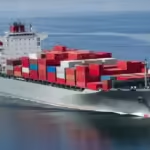

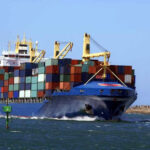
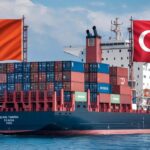
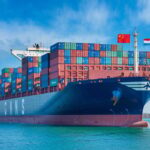
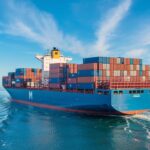
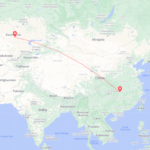
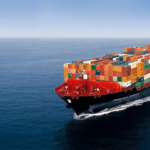
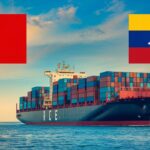
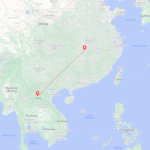
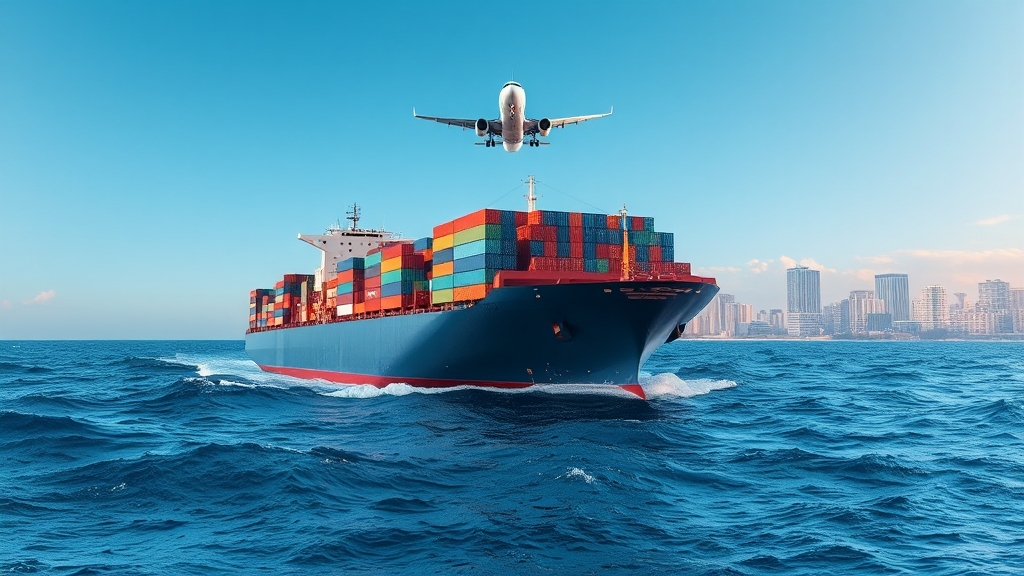
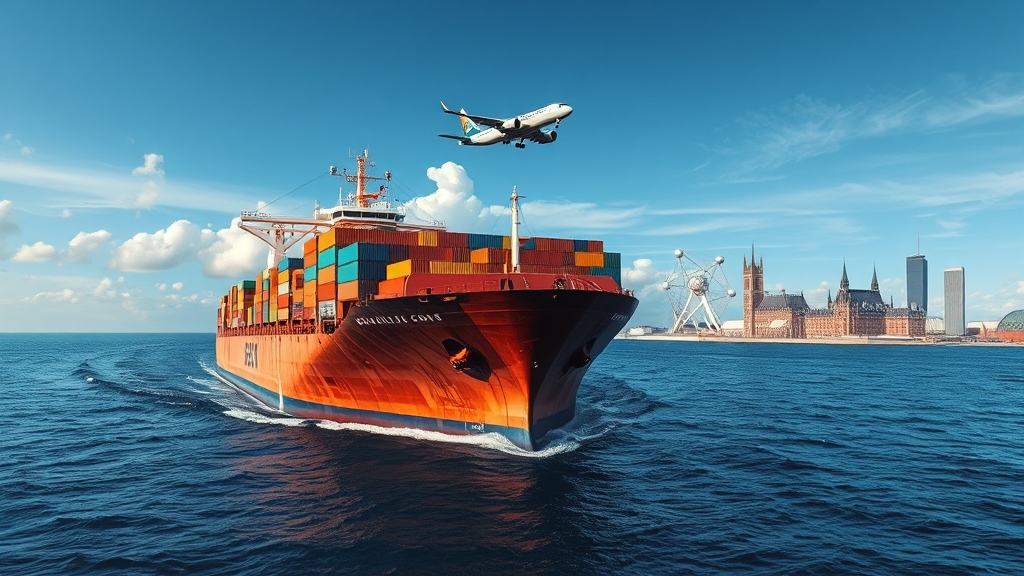
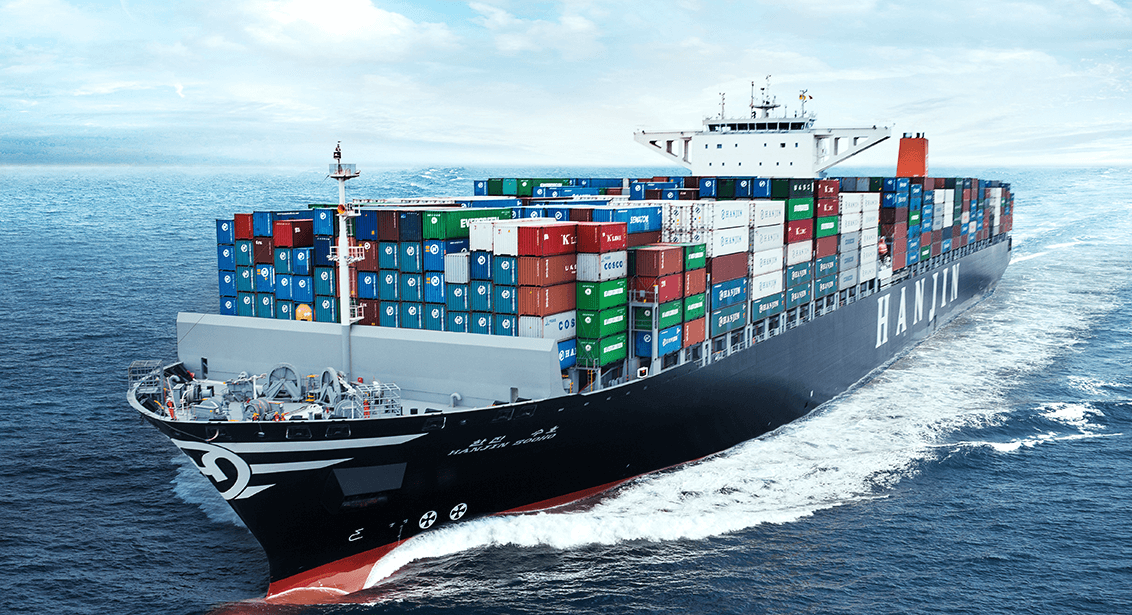
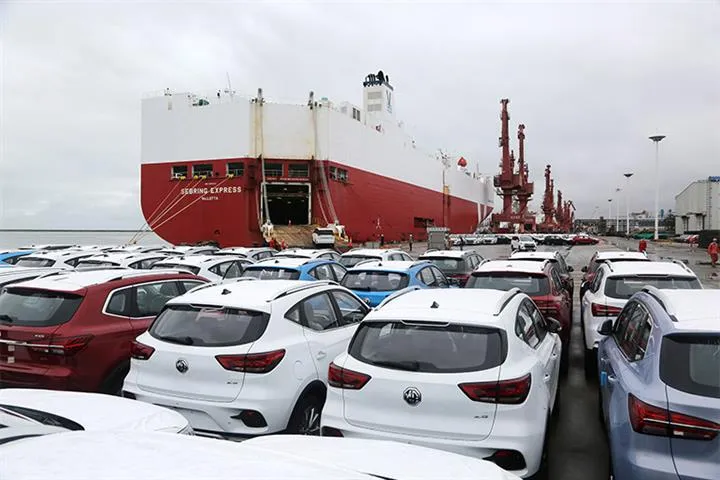






 Afrikaans
Afrikaans Shqip
Shqip አማርኛ
አማርኛ العربية
العربية Հայերեն
Հայերեն Azərbaycan dili
Azərbaycan dili Euskara
Euskara Беларуская мова
Беларуская мова বাংলা
বাংলা Bosanski
Bosanski Български
Български Català
Català Cebuano
Cebuano Chichewa
Chichewa 简体中文
简体中文 繁體中文
繁體中文 Corsu
Corsu Hrvatski
Hrvatski Čeština
Čeština Dansk
Dansk Nederlands
Nederlands English
English Esperanto
Esperanto Eesti
Eesti Filipino
Filipino Suomi
Suomi Français
Français Galego
Galego ქართული
ქართული Deutsch
Deutsch Ελληνικά
Ελληνικά Kreyol ayisyen
Kreyol ayisyen Harshen Hausa
Harshen Hausa Ōlelo Hawaiʻi
Ōlelo Hawaiʻi עִבְרִית
עִבְרִית हिन्दी
हिन्दी Hmong
Hmong Magyar
Magyar Íslenska
Íslenska Igbo
Igbo Bahasa Indonesia
Bahasa Indonesia Gaeilge
Gaeilge Italiano
Italiano 日本語
日本語 Basa Jawa
Basa Jawa ಕನ್ನಡ
ಕನ್ನಡ Қазақ тілі
Қазақ тілі ភាសាខ្មែរ
ភាសាខ្មែរ 한국어
한국어 كوردی
كوردی Кыргызча
Кыргызча ພາສາລາວ
ພາສາລາວ Latin
Latin Latviešu valoda
Latviešu valoda Lietuvių kalba
Lietuvių kalba Lëtzebuergesch
Lëtzebuergesch Македонски јазик
Македонски јазик Malagasy
Malagasy Bahasa Melayu
Bahasa Melayu മലയാളം
മലയാളം Maltese
Maltese Te Reo Māori
Te Reo Māori मराठी
मराठी Монгол
Монгол ဗမာစာ
ဗမာစာ नेपाली
नेपाली Norsk bokmål
Norsk bokmål پښتو
پښتو فارسی
فارسی Polski
Polski Português
Português ਪੰਜਾਬੀ
ਪੰਜਾਬੀ Română
Română Русский
Русский Samoan
Samoan Gàidhlig
Gàidhlig Српски језик
Српски језик Sesotho
Sesotho Shona
Shona سنڌي
سنڌي සිංහල
සිංහල Slovenčina
Slovenčina Slovenščina
Slovenščina Afsoomaali
Afsoomaali Español
Español Basa Sunda
Basa Sunda Kiswahili
Kiswahili Svenska
Svenska Тоҷикӣ
Тоҷикӣ தமிழ்
தமிழ் తెలుగు
తెలుగు ไทย
ไทย Türkçe
Türkçe Українська
Українська اردو
اردو O‘zbekcha
O‘zbekcha Tiếng Việt
Tiếng Việt Cymraeg
Cymraeg יידיש
יידיש Yorùbá
Yorùbá Zulu
Zulu